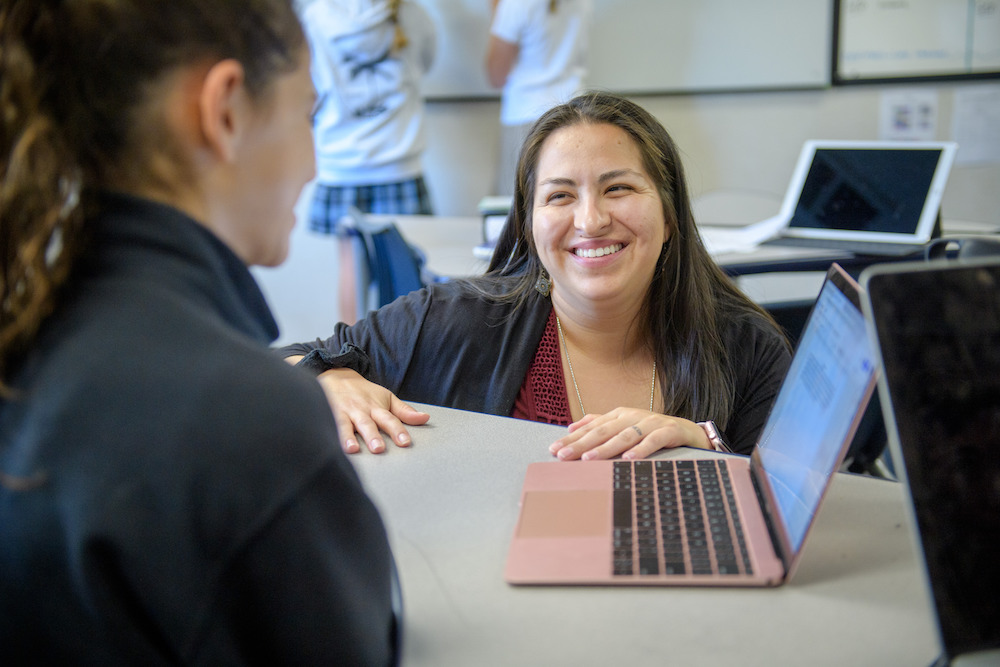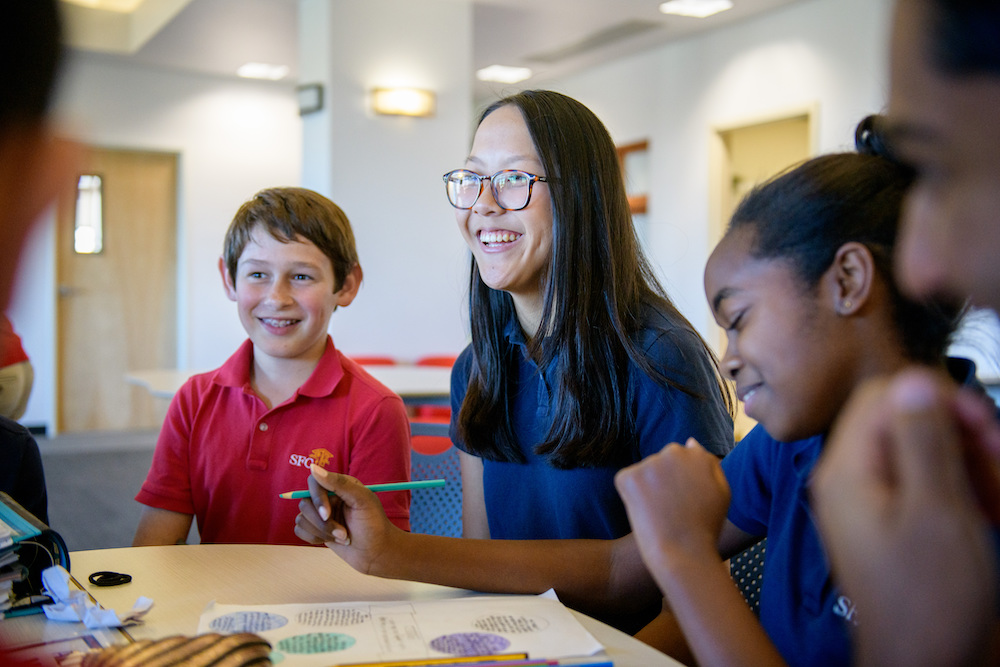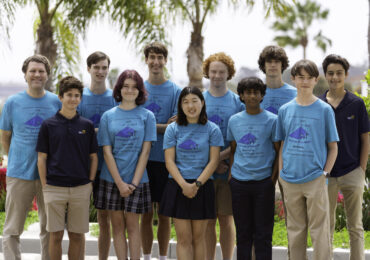In the fabric of campus life, student development through mentorship and discipleship drives the heart of Santa Fe Christian staff and leadership. Thoughtfully structured class sizes, electives, and service opportunities help catalyze a cohesive community.
Investing in students is a calling for SFC staff. “This isn’t a 7:45 to 3:30 job for anybody that’s here,” remarks Dr. Todd Deveau, Middle School Principal. Every staff member “has been called here, and this is a ministry – they love these kids like they were their own.” In each facet of academic life, “these teachers are all in,” Dr. Deveau expresses. “That’s one of the things that makes it so unique because the kids, as a result, develop a tremendous amount of trust in the adults around them and on this campus.” Out of this place of mutual respect comes forth a “really positive environment for discipleship.”
Walking through the campus, “you’re going to find adults pouring into the kids” from casual conversations to “kids asking adults for advice,” Dr. Deveau shares. Kids are “looking to the adults here because of that trust for advice and counsel and (adults) give it willingly.” As a partnership school, Dr. Deveau reiterates that “we are working right alongside the parents. It’s the parents’ responsibility Biblically to be the primary educators of these kids, so we come alongside the parents.” Communication between the school and parents is consistent and reciprocal with “the same goals in mind.”
What Mentorship Looks Like
Jackie Lewis, a fifth-grade science teacher, shares what mentorship looks like for teachers. “I think it’s incredibly important and a privilege to be a mentor in these students’ lives.” Mentorship is “in everything that we do each day.” Whether in sports, missions, trips, or conversations at recess, “everything we do is about relationships and mentorship.” Lewis finds having a faith connection with her students facilitates interaction beyond “what’s happening in the classroom. I can talk about God and their relationship with God and how we see things through a Biblical lens.”
RELATED: The X’s and O’s of Sports Mentorship
Sixth-grade earth science teacher Kelly Lind recognizes that a mentor role allows for “more candid conversation” and the opportunity to “pray for them as well.” She underscores the importance of understanding students’ emotional health, not just their academic health, “but who they are as a whole, as a person.”
Student-to-Student Mentorship
Student-to-student mentorship provides one of the most unique and exciting components of SFC’s approach to student character development and campus life. Encouraging leadership and concern for others also connect students.
Student-to-student mentorship allows students to interact with different age groups, starting as early as Elementary School. Laying a foundation for service and a Christian walk starts with a fifth-grader mentoring first-graders. Students are paired with a “buddy,” Deveau shares. Fifth-grade students are taught that they’re leading by example and “how your first-grade buddy sees those things [even] when you’re on the playground, or walking to carpool, or standing with them in line.”
Lewis reflects on a specific situation where mentorship paid obvious dividends in one student’s development. During SFC’s annual World Peace Challenge, staff placed students into teams against each other and instructed them to resolve a conflict. Lewis worked with a student struggling to play his role. As part of the United Nations, “he had to sell people on his services and bring everybody together,” Lewis shares. Engaging with him and guiding him through the activity built his confidence. By the end, he “had everybody paying the United Nations dues” and buying into “what they were going to provide.” Lewis witnessed an uncomfortable student find his niche. “Then he just did, and it clicked. It was this awesome activity for him to realize his strengths and how God created him.”
Mentorship Benefits Go Both Ways
At SFC, mentorship impacts both students and teachers alike. “When kids have issues, they find an adult on this campus to share with,” Dr. Deveau conveys. In many schools, kids must figure out issues “on their own and amongst themselves.” This creates an “unhealthy environment because children are trying to make these big decisions when they’re not equipped to do it.” Because mentorship is a continual part of the SFC campus environment, “kids are open and willing to work with the adults and take their counsel to heart.”
For teachers, the rewards of mentorship are great. Bible teacher Mark Andriany considers the mentorship component “his favorite part of the job.” Every day at break and lunch, he keeps his doors “wide open.” Groups of students come, meet, and talk about the Bible. “We talk about life. We talk about relationships. We talk about how to function in relationships. We talk about how to make certain decisions that they’re struggling with.” Of everything he does at SFC, mentorship is “worth its weight in gold.”
“It’s mind-blowing for me when a high school sophomore or an eighth-grade boy says, ‘Hey, Mr. A, can we talk? I just want to read more of the Bible, and I feel like I just need more. I need help.’ Or, ‘Hey, can we talk about this relationship I’m going through? I just need help navigating it.’” For Andriany and other staff, mentorship moments are their mission.





